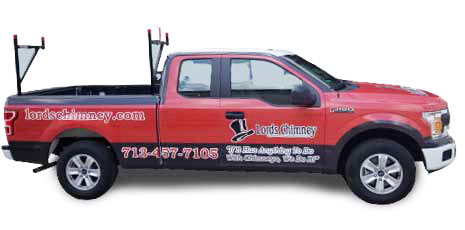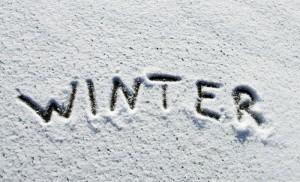During the cold winter months, many families use their fireplaces as a gathering place, sitting together and enjoying the warm flames. But even as your fireplace is keeping you warm inside, the cold temperatures and winter weather could be damaging your chimney outside.
Winter weather conditions are notorious for destroying chimneys and causing existing damage to deteriorate even faster. Snow, ice, and freezing rain can wreak havoc on a chimney system, even one that is in seemingly good condition. Because of this, it is extremely important get a chimney sweep and inspection before the weather gets any colder. This ensures that your fireplace and chimney are safe to use and have not been damaged during the past year.
Water damage
The main way that chimneys are damaged during the winter months is due to water damage. If water is able to enter a chimney structure, it can cause a multitude of issues including rusting pieces of the flue to damaging the masonry. Pinpointing how water is entering a chimney can often be difficult as there are many different places that can cause leaks. The trained technicians at Lord’s Chimney are leak resolution experts who can find and fix the water entry before it causes further damage.
Below are three of the most common causes of water entry in a chimney system:
Damaged chimney cap: Chimney caps cover the top of the chimney itself, keeping the water from rain, sleet, and snow from getting into a chimney. Improperly installed, ill-fitting chimney caps, or damaged chimney caps can allow water to enter the fireplace system. Damage to the chimney cap is often difficult to spot because they cannot be seen from the street.
Leaky flashing: Flashing is the metal band that connects the chimney to the roof structure. Nail holes, loose caulking, poor materials, or general wear and tear can all cause flashing to lose its waterproof seal. Damaged flashing can cause damage to both the chimney and the roof, which is why it is vital that it is properly installed and maintained.
Masonry damage: Although bricks are made to be porous, absorbing too much water can be detrimental. During the freeze/thaw cycle, water in the brick expands as it freezes, causing additional cracks and damage. As it thaws, this creates more space for additional water entry and the cycle continues, eventually causing the brick to break apart and crumble.
Preventing chimney damage
The best way to prevent damage to your chimney during the winter months is through preventative maintenance. An annual sweep and inspection allows any issues to be spotted and resolved before they become major problems. This can save both time and money as well as preserve the safety and structure of your safety.
Lord’s chimney can also apply a special waterproofing to bricks and mortar. The ChimneySaver sealant retains the porous quality of the bricks, letting toxic gasses pass through without letting moisture in. ChimneySaver also allows trapped moisture to evaporate, preventing deterioration, freeze/thaw damage, and the need for expensive masonry reconstruction.
If you have questions about the health of your chimney system, need to schedule an annual sweep and inspection, or would like more information on ChimneySaver waterproofing, contact Lord’s Chimney today!


